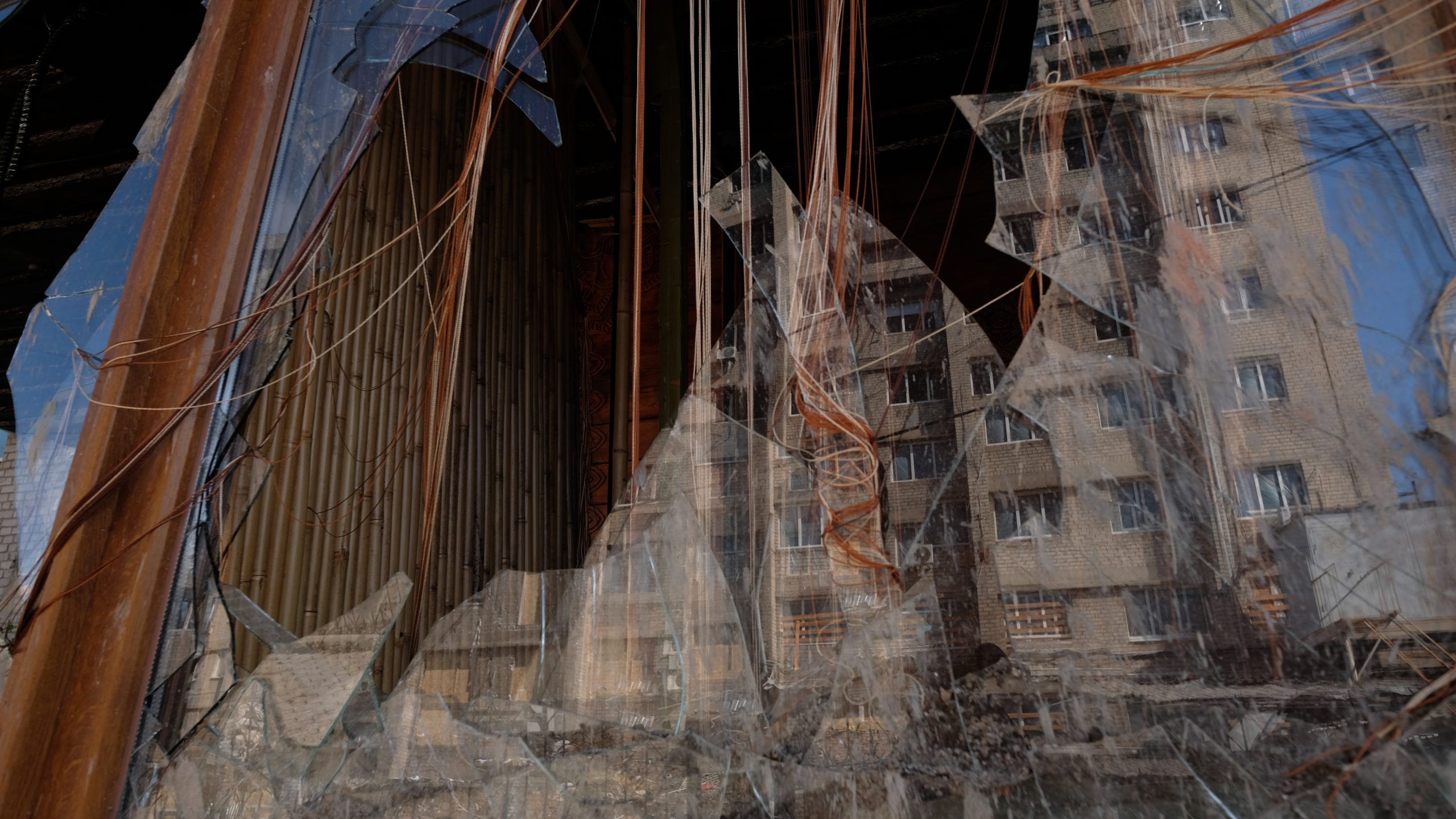By Adam Sybera
1. Big red mirror
Russian Federation’s communication strategy, as its predecessor Soviet Union, supported and supports, through any means, political and information campaigns reflecting the Russian interpretation of history. The contemporary Kremlin propaganda mechanism echoes Lenin’s polemic of “only morality”, which subdues moral essence into anything benefiting “the interest”.
In Kremlin logic, this means no holds barred, deception allowed, no one spared, identification of targets listed and constantly updated. As in Soviet days, resentment, social pressure, and moral relativism are political tools of coercion.
Before 1989, Soviet Union was abounded with a worldwide network of committed Communist parties, reliably amplifying Kremlin narratives. Unable to provide any innovation, resurrecting scars of European history, through any means, Russian Federation consistently invests in loyal, as well as pragmatic elements through the spirit of Lenin’s “only morality”. Constantly pouring the water on the mill of the “fifth column”.
General Ion Pacepa, the highest-ranking intelligence official to defect KGB, describes this mechanism as a system of “effective Kremlin deception” and a “despicable effort without moral consideration” in his book “Disinformation”.
2. Fifth Column
A network of artilleries carrying Kremlin influence spread through the former Eastern bloc (and beyond) distorting the social perception of reality. Data, information, influence all turned into profit fueling Kremlin’s imperial ambitions. Defined as “politics of chaos” in Gerasimov’s doctrine, a series of subversion tactics applied to weaken or fully disarm the target. Confused target is vulnerable, defenseless.
Focusing on Czechia, recently, its disinformation network, regurgitating Russian narratives justifying the invasion of Ukraine, became actively involved in meddling into ongoing presidential elections. Some of the narratives used throughout the campaign correspond with traditional Kremlin narratives, twisting Russia’s acts of aggression actions as “defensive” and “imposed on Russia” by “Western provocation”.
Then candidate, now elect, Petr Pavel, a former NATO general, faced a smear campaign as a “servant to a new dictatorship”, in attempts to portray him as an agitator “desiring confrontation with Russia”, who will implement “horrible fascism” and categorizing him as a “warmonger”.
This propaganda goulash, algorithmically adjusted for the Czech consumer, contained ambiguous fascist constructions, long-reach “examples” of Russophobia, weaponization of historical injustices, and an omnipresent factor of “western decadence”. Consequently, briefly offering insight into the great Russian paradox (insecurity?) of a continually victimized “superpower”, who justifies its own aggression as an act of “good will” or “brotherly aid”.
It is a repetitive phenomenon in initial outbursts of Russian imperialism. There is no need to argue at length to why, it is simple – strumming sensitive strings of history, traumas, and fear of war, unfortunately works.
Russian disinformation platforms, use the topic of war as a red thread stitching together various aspects of political discourse. For instance, in central Europe, it dwells on current inflation to pitch against arms supplies to Ukraine, undermines Czech-Ukrainian cooperation with pseudo arguments of “gradual Ukrainization of the Czech Republic” and links the success of the former NATO and Czech Army general Petr Pavel, in the presidential election, as a preamble for general mobilization for war with Russia.
All in all, the rhetoric of pro-Russian disinformation has a striking resemblance to the oratory of Andrej Babiš’s presidential campaign and present attitude. A walking capsule of Czechoslovak normalization, followed by a period of the wild 90’s with cheap after-taste of illusion and self-deceit. The current oligarch, former prime minister, former finance minister, StB agent (secret police force of the pre-1989 communist party), and a final beneficiary to several media and publishing houses becomes a caricature of its own empire.
The character of Andrej Babiš, his private interest, history and above all current political involvement make him a model tool of Russian propaganda, whether of his own free will or as a drowning “useful idiot” catching to a straw.
3. The playground
Kremlin propaganda narratives creep their way and influence the information mainstream via populism that overlaps Kremlin’s agenda of undermining European unity.
The know-how dwells in releasing an original piece of disinformation, such as the “expanding west” narrative, into the information space which further parasitizes on the current social atmosphere now seeking explanations for a large-scale war in Europe. At first only appearing on openly pro-Russian platforms such Aeronet or Sputnik, resonating the narrative in a specific social bubble. However due to the demand on the topic and nature of social media – emotionally reactionary – seeps its way into to mainstream discourse.
This vulnerability in civil resilience of the targeted society is an opportunity for propaganda manipulation, but also, as in the case of Andrej Babiš in Czech Republic, for populist exploitation. Obviously, this is not exclusive for Andrej Babiš. Just compare other multi-billionaire or oligarchic interests around the globe. Donald Trump, Silvio Berlusconi, Jared Bolsonaro, the list keeps growing.
Kremlin-backed websites always have space disposed to political analysts, “experts” of sorts, celebrities, and politicians ready to echo Russian foreign policy. Kremlin narratives and populist politics, often flatter each other. In Andrej Babiš case, it was undermining Czech commitments to NATO allies, disapproving Czechia as a western puppet, and highlighting himself as the “candidate of peace” even using the phrase “diplomat not a soldier” as a punchline during the final phase of the campaign.
Meanwhile, Babiš backed media houses, in the spirit of “only morality” (what is Babiš’s interest is our interest) devotedly spread and cement the claims insinuated by the Kremlin amplifiers within the Czech information space and disperse within the political campaign, creating a multi-verse of the very same narrative, ultimately providing an illusion of complexity and leaving the consumer with colorful imagination but little choice.
Andrej Babiš is the owner of the largest Czech media company MAFRA a.s., which among others, publishes widely read newspapers MF DNES and Lidove Noviny, virtually unmissable within the Czech information space. Affirmed through its presence in the online space, its ownership of the free daily Metro and the weekly 5plus2 making up nearly 25% of the entire Czech media space. And this is still only Andrej Babiš.
4.Éminence grise
Acquiring power over a media house is a basic step for anyone serious about influence and as such, media houses, like football clubs, have become a constant in the repertoire of the average oligarch. True in varying degrees and due to different motives, however it is now estimated, that nearly 75% of all information outlets in central Europe are fueled by private interest. The development of media in the digital age, driven through algorithms echoing content to reach the largest audience and due to the not particularly diverse nature of the Czech information space, makes this a breeding ground for politics of chaos.
The American political scientist Jeffrey Winters points out that the 15 richest Czechs own roughly the same amount of wealth as the poorer half of society. The same people portion the Czech information space, essentially controlling the spotlight to objects of desire. Influencers, political candidates, programs, or even entire parties now have to “deserve” the attention, rendered to pawns in a chess game. Remarkably, the players holding the pieces receive or had received in the past significant benefits from both the Soviet Union and the Russian Federation.
For instance, the powerful financial group PPF, a luxury taxi service for the pro-China pro-Russia president Miloš Zeman, until recently operated its flagship consumer loan company HomeCredit in Putin’s Russia (relocated to Kazakhstan in September 22 as a gesture of “moral standards” according to the groups spokesman). The same company controls the media and entertainment company CME, which runs the popular Nova television station in the country.
Moreover, PPF often provides funds needed for operations of another Czech conglomerate, the EPH group, ran by the boyfriend of Petr Kellner’s daughter Daniel Křetínský, involved in the transportation of Russian gas. Fun fact, Petr Kellner was one of the few non-russian’s who had a successful lawsuit against Oleg Deripaska, in Russia. Nevertheless, the EPH conglomerate owns another substantial chunk of the Czech media. CMI and Czech News Center run the E15 platform, the most widely read tabloid Blesk, and the popular Europe 2 radio station.
In the current form of capitalism and considering the contemporary (in)application of real politics, there is no room for self-deception anymore. These platforms serve the interest of their owners. Sustainability of similar information ex-change models and its effects on the state of democracy would do for an interesting debate in times of peace, but at a time when Europe’s eastern border is under attack and Ukraine is struck by an open war, media ownership by private interest whose own financial empire depends in large part on the Russian market or will of the Kremlin autocrat, should be regarded as a substantial red flag.
5. Network of kingmakers
As Russia further reveals the scale of their imperial ambition, it becomes increasingly difficult for the global network of Kremlin foot soldiers, to disguise themselves with “pragmatic business” and “equal debate” explanations, as they are (in some cases) existentially tied to the Kremlin. Such financial conglomerates are reduced to the same role global communist parties played for the Soviet Union before its collapse, creating a similar, worldwide network. Moreover, nn contrast to the loss-making nature of media, whose activities are frequently heavily subsidised, these financial tycoons present themselves as ruthless profit makers and genius businessmen, however the numbers usually suggest that they operate in debt.
In Putin’s Russia, debt is used as a political tool and a means of coercion (in Western literature described in works of Edward Lucas and Luke Harding). People in debt are used as manipulable commodities and debtors are habitually vilified.
On business level, similar tactics are used to assert influence as in the case of Karel Pražák or Richard Benýšek associated with PPF, who “hunt” for Czech companies and keep the local list constantly updated. On a personal level, families to whom these financial institutions hold promissory notes are subjected to pressure due to possibility of an endlessly multiplying debt. For such institutions, this has added value as a tool of coercion. This is how people are controlled and “tamed”.
In the last 30 years, the level of debt in Russia rose to galactic levels, quality of life dropped decades into history. Loyal financial conglomerates over-looked the gold rush following “end of history” in 1989 and Kremlin began to sow disinformation, disintegration, and debt. Highlighted by the tragic decision-making capacity of local communities, the “Z” death cult and war offers a way out of the misery. As in the case of Buryats, whose mass debt and hopelessness drive them into the Russian army by thousands.

Reflection of Hotel Kramatorsk damaged by Russian shelling. Photo by Wayne Kratochvíl



